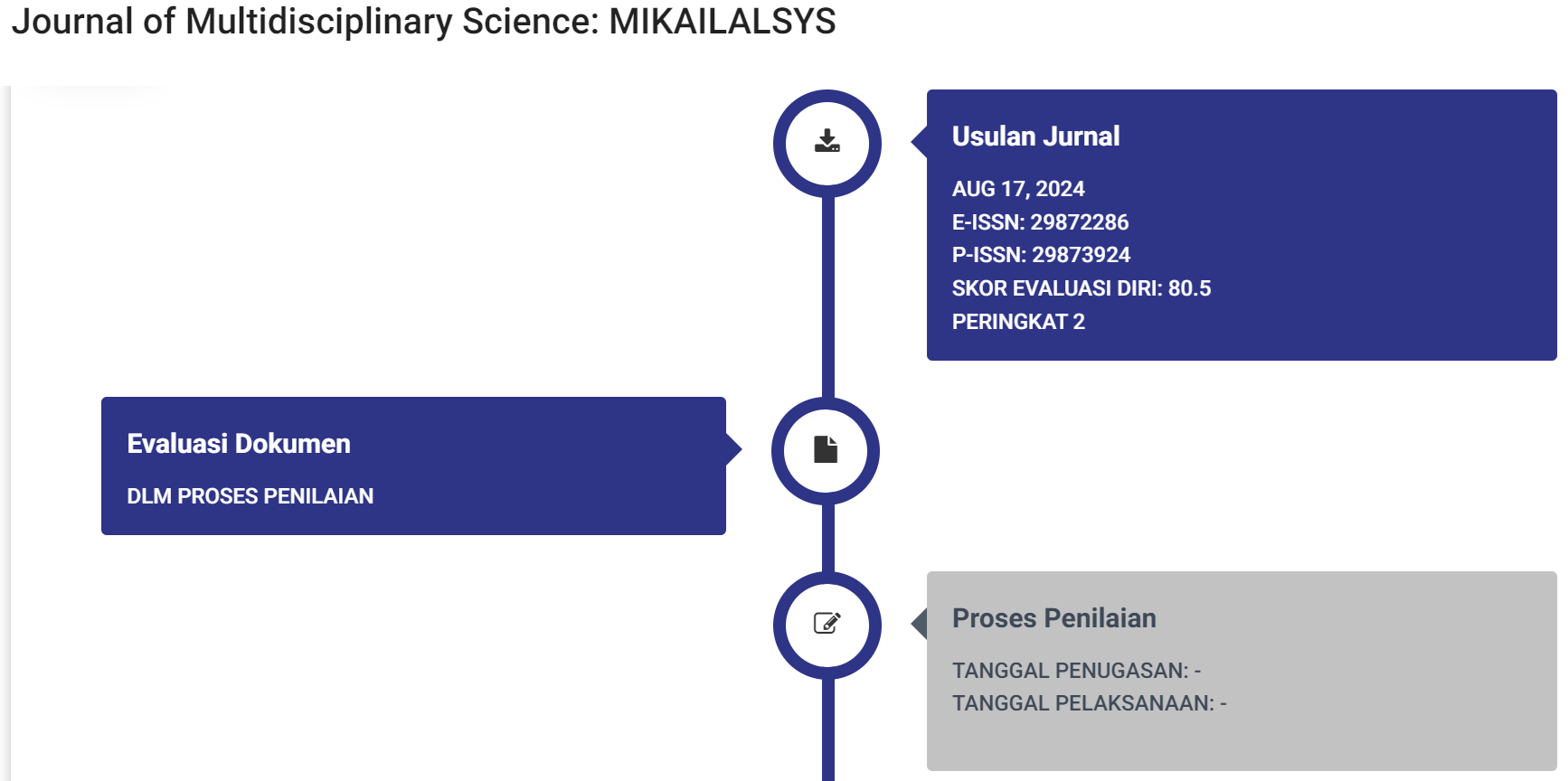Investigating External Causes for Lack of Reading Motivation among Private High School Students
 Digital Object Identifier:
10.58578/mikailalsys.v1i3.2266
Digital Object Identifier:
10.58578/mikailalsys.v1i3.2266
Please do not hesitate to contact us if you would like to obtain more information about the submission process or if you have further questions.

Abstract
This article investigates the critical issue of dwindling reading motivation among high school students in Surabaya, Indonesia, specifically focusing on English texts. Against the global context of the paramount importance of reading proficiency, the data reveal a troubling decline in reading interest, particularly evident among private high school students in metropolitan areas. The study advocates for implementing the multiple intelligences strategy and emphasizes the crucial role of teachers in fostering motivation and interest in reading English texts. Using a descriptive qualitative approach with participants from a Surabaya-based private high school, the research employs convenience sampling, incorporating interviews and observations for data collection. The findings spotlight external factors contributing to students' diminished motivation, encompassing unappealing book covers, underutilized free time, comprehension challenges, and limited book availability. The ensuing discussion underscores the necessity for targeted interventions by educators and policymakers, extending beyond academic success to cultivate a positive reading culture. Such a culture contributes to holistic student development, nurturing cognitive abilities, effective communication skills, and instilling a lifelong love for learning. In conclusion, the study emphasizes the profound implications of investing in a positive reading culture for the personal and intellectual growth of high school students in Indonesia.




Citation Metrics:

Downloads

Authors retain copyright and grant the journal right of first publication with the work simultaneously licensed under a Creative Commons Attribution-NonCommercial-ShareAlike 4.0 International License that allows others to share the work with an acknowledgement of the work's authorship and initial publication in this journal.
References
Ahmadi, M. R., Ismail, H. N., & Abdullah, M. K. K. (2013). The Relationship between Students’ Reading Motivation and Reading Comprehension. Journal of Educational and Practice, 4(18).
Bailey, F., & Kadhum Fahad, A. (2021). Krashen Revisited: Case Study of the Role of Input, Motivation and Identity in Second Language Learning. Arab World English Journal, 12(2). https://doi.org/10.24093/awej/vol12no2.36
Bogel, G. (2011). Choosing the right book: Factors that affect children’s reading. In Evidence Based Library and Information Practice (Vol. 6, Issue 1). https://doi.org/10.18438/b83g8j
Creswell, J. W. (2012). Educational research: Planning, conducting, and evaluating quantitative and qualitative research. In Educational Research (Vol. 4).
Dakhi, S., & Damanik, I. S. (2018). Students’ Motivation in Reading English Text: A Qualitative Study in EFL Context. JET (Journal of English Teaching), 4(2). https://doi.org/10.33541/jet.v4i2.832
Gilakjani, A. P. (2011). A Study on the Situation of Pronunciation Instruction in ESL/EFL Classrooms. Journal of Studies in Education, 1(1).
Kuşdemir, Y., & Bulut, P. (2018). The Relationship between Elementary School Students’ Reading Comprehension and Reading Motivation. Journal of Education and Training Studies, 6(12). https://doi.org/10.11114/jets.v6i12.3595
Lopera Medina, S. (2014). Motivation Conditions in a Foreign Language Reading Comprehension Course Offering Both a Web-Based Modality and a Face-to-Face Modality. PROFILE Issues in Teachers’ Professional Development, 16(1). https://doi.org/10.15446/profile.v16n1.36939
Maneba, S., Melansari, N., & Adu, B. (2021). ANALYSIS OF STUDENTS’ MOTIVATION IN READING ENGLISH. English Education Journal. https://doi.org/10.55340/e2j.v7i2.692
McMullan, T., & Sutherland, J. (2020). Developing motivated adolescent readers and enhancing student voice, using action research in disadvantaged contexts. London Review of Education, 18(3). https://doi.org/10.14324/LRE.18.3.12
Oyewusi, F., & Shabi, I. (2016). Library use and reading habits as predictors of information literacy competencies among finalists in selected private secondary schools in Ife, Osun State, Nigeria. In International Journal of the Book (Vol. 14, Issue 3). https://doi.org/10.18848/1447-9516/cgp/v14i03/1-14
Vianty, M., Amrullah, A., & Fiftinova, F. (2020). ENGLISH READING MOTIVATION, STRATEGIES, ATTITUDE, AND INTEREST OF STATE JUNIOR HIGH SCHOOL STUDENTS. The Journal of English Literacy Education: The Teaching and Learning of English as a Foreign Language, 6(2). https://doi.org/10.36706/jele.v6i2.10825
Vuong, Q. H., Le, A. V., La, V. P., Vuong, T. T., Do, T. H., Vuong, H. M., Do, D. L., Hoang, P. H., Vu, T. H., Ho, M. T., & Ho, M. T. (2019). A dataset of vietnamese junior high school students’ reading preferences and habits. Data, 4(2). https://doi.org/10.3390/data4020049
Walters, W. H. (2014). E-books in academic libraries: Challenges for sharing and use. Journal of Librarianship and Information Science, 46(2). https://doi.org/10.1177/0961000612470279

























